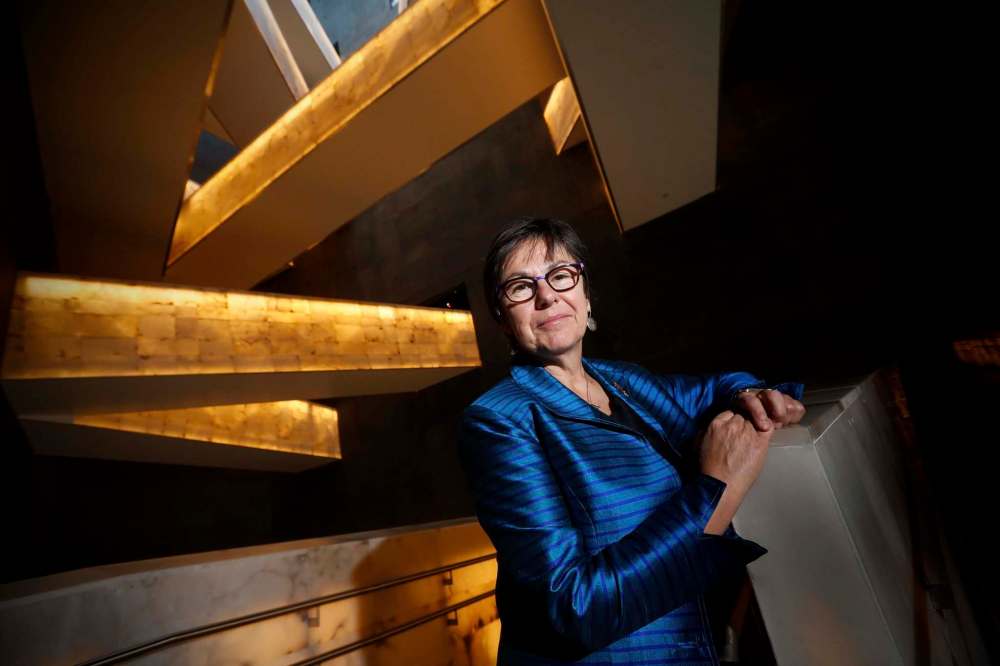Invest in people, not prisons, senator says
Advertisement
Read this article for free:
or
Already have an account? Log in here »
To continue reading, please subscribe:
Monthly Digital Subscription
$0 for the first 4 weeks*
- Enjoy unlimited reading on winnipegfreepress.com
- Read the E-Edition, our digital replica newspaper
- Access News Break, our award-winning app
- Play interactive puzzles
*No charge for 4 weeks then price increases to the regular rate of $19.00 plus GST every four weeks. Offer available to new and qualified returning subscribers only. Cancel any time.
Monthly Digital Subscription
$4.75/week*
- Enjoy unlimited reading on winnipegfreepress.com
- Read the E-Edition, our digital replica newspaper
- Access News Break, our award-winning app
- Play interactive puzzles
*Billed as $19 plus GST every four weeks. Cancel any time.
To continue reading, please subscribe:
Add Free Press access to your Brandon Sun subscription for only an additional
$1 for the first 4 weeks*
*Your next subscription payment will increase by $1.00 and you will be charged $16.99 plus GST for four weeks. After four weeks, your payment will increase to $23.99 plus GST every four weeks.
Read unlimited articles for free today:
or
Already have an account? Log in here »
Hey there, time traveller!
This article was published 13/05/2017 (3099 days ago), so information in it may no longer be current.
Provincial and federal governments continue to pay more to incarcerate people when that money could be spent instead on investing in community organizations, treatment programs and family supports, a senator and longtime inmate advocate told a Winnipeg crowd Friday night.
Less than a year into her Senate appointment, Kim Pate continued her 35-year activism to raise awareness about the state of Canada’s prisons with a talk at the Canadian Museum for Human Rights, the first in a restorative justice lecture series offered by Mediation Services.
Pate is drawing attention to the plight of the fastest-growing population of prisoners in Canada — women and girls — most of whom have had histories of physical and sexual abuse and mental illness. “That’s a horrendous reality to face, but one a lot of people don’t know,” said the former executive director of the Canadian Association of Elizabeth Fry Societies.

Indigenous women, in particular, are disproportionately locked up in Manitoba and across Canada and are “under-protected and over-policed,” Pate said in an interview with the Free Press before her presentation. The federal government spends millions a year housing women in the federal prison system.
“Why not invest that in the community and have it benefit not just those people who might otherwise be criminalized, but the entire community? So I think we choose how we spend — it’s a policy decision of how we spend our money,” she said.
Manitoba has long maintained one of the highest incarceration rates and the highest rate of inmates on remand awaiting trial. Women who are incarcerated are more likely to face additional charges for acting out in custody, Pate said, even though the same behaviour is more likely to be tolerated in male prisoners.
“Really what it was usually was how they were reacting after they’d been strip-searched… or their own experience of having been sexually abused when they were young was to resist anybody doing anything on their body. And so if they violently reacted, if they pulled away, they might get charged and in prison if they swore at people or were disrespectful, they might accumulate charges,” she said. “Again, it doesn’t excuse bad behaviour, but in my experience… you wouldn’t see men getting criminal charges for that kind of behaviour. You wouldn’t see them classified as maximum-security prisoners.”
In Manitoba, where the realities of missing and murdered indigenous women and over-representation of indigenous inmates are apparent, Pate said, leaders need to do more to follow the “calls to action” identified by the Truth and Reconciliation Commission.
She intends to continue her advocacy work in the Senate with the goal of reducing the number of inmates in custody who could be helped by improved access to mental-health services, addictions treatment and more community support. She is preparing to embark on a tour of Canadian prisons with the human rights committee.
“I have an obligation to use whatever privilege I have now because of my education and because of this position to work as hard as I can to ensure these issues are dealt with.”
katie.may@freepress.mb.ca

Katie May is a multimedia producer for the Free Press.
Our newsroom depends on a growing audience of readers to power our journalism. If you are not a paid reader, please consider becoming a subscriber.
Our newsroom depends on its audience of readers to power our journalism. Thank you for your support.

